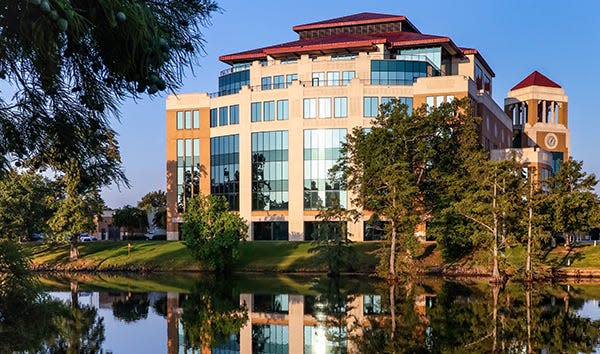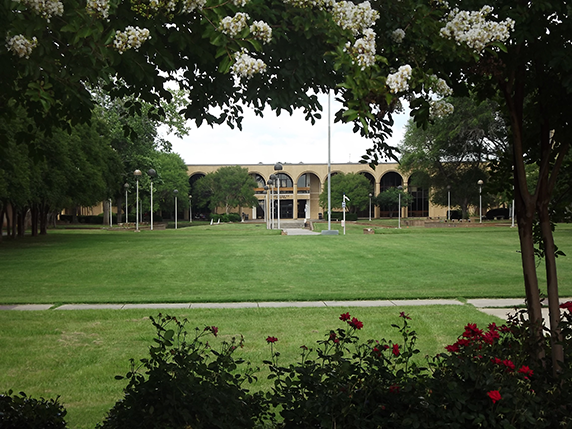What would ending college diversity measures mean for some Louisiana schools?

There are concerted efforts from political groups to ban diversity measures in higher education.
The Louisiana Republican State Central Committee passed a resolution April 15 asking the Louisiana Legislature to ban diversity, equity and inclusion departments and agencies within all state colleges and universities.
However, regional DEI directors say these programs cater to a largely diverse group of students at colleges and universities throughout the state and diminishing these programs could do more harm than good.
More: Louisiana Republicans want an end to diversity measures at colleges
What are DEI offices in postsecondary education?
An Office of Diversity, Equity and Inclusion is an office where colleges and universities seek to cultivate an educational environment where every human gift is valued and developed, as well as making sure whatever individuals' gifts are that there's a place for them to be self-actualized, University of Louisiana Monroe Executive Director for Diversity, Equity and Inclusion Dr. Pamela Higgins-Saulsberry said.
"The specific function, therefore, would be to help create that diverse and inclusive communal atmosphere that's successful to all where everybody can feel comfortable with achieving whatever goals that they have targeted for themselves to achieve," Saulsberry said. "I've been doing this [for] a long time and I remember when we didn't even have a specific office for recruitment but we know that recruiting is what we needed to have for student populations. Even right now, we're all told that we are a part of the 'recruiting' mission that we have. However, we have a specific office for that because that office will structure how recruiting is going to be done formally, etc. and I really don't see any difference in having a specific office that even though we all should be appreciative of the effort of helping everybody self-actual use, having an office specifically that has that charge."
Louisiana State University at Shreveport offers pipeline programs, Assistant Vice Provost for Diversity, Inclusion and Community Engagement Dr. Kenna Franklin said, that brings people who would not normally have a voice in this process together and see what their needs are.
"We like to think of ourselves as barrier breakers," Franklin said. "Once we find out there's a barrier to a student's success then we go about trying to find ways to reduce that if not eliminate the barrier altogether. What we want to do is really move the needle to include more. More of an advantage, more exposure. To us, those are the key components of the growth of a college student and to, in any way that we can, make their college days a meaningful experience."
More: Help kids transition to colleges successfully
Humanity and being human is the common denominator on college and university campuses, Saulsberry said. However, everyone is all different.
"Some are big," Saulsberry said. "Some are tall. Some are short. Some have disabilities. Some do not know that's what diversity is all about and because the person who perhaps is not as mobile as others is going to need something different to enter a building and get to a second floor than someone who's not. Creating a way for a person to have access to the second floor is part of the duties that we do, to make sure, intentionally, that people have access. No matter what their difference is."

Race is the biggest misconception about diversity, equity and inclusion offices.
The biggest misconception about diversity, equity and inclusion departments is that they are solely based on race, Saulsberry and Franklin said.
"I read the resolution that Louisiana has and it was saying things like critical race theory, and no," Saulsberry said. "I was saying this person must have not done the homework on what ULM or I venture to say LSU or whomever university, Tulane, Tech, whatever, because it's going to be individualized. We're drawing from different segments of the state, nation, world and if people would look at our Facebook page. They would see a litany of activities that are much more. I'm not minimizing because we cannot minimize. I was reading a story that said something about doing away with racism I think because it was an unsettling time but that's history so what are you going to do."
Franklin said she never bases a project on race but on serving the needs of the people in the region.
"Opportunity, for the most part, is not based on color attachments," Franklin said. "It's based on access and the ability to learn and to grow, and to become a complete citizen of the world. I think when we minimize what this office can do, we minimize our opportunity for growth."
How could legislation potentially affect DEI offices?
Although the group is attempting to get legislators to institute laws to ban diversity measures in postsecondary education, there are currently no laws or proposed laws sponsored by legislation.
Despite those efforts, Saulsberry said it would be illegal to institute a law banning DEI offices at colleges and universities, referencing the Civil Rights Act of 1964 which prohibits discriminatory practices.
"You're discriminating if you don't give equal access," Saulsberry said. "If a person who's in a wheelchair can't get into a building, that's discrimination because that's not equal access. STEM programs for women, we have TRIO programs for first-generation so where do you stop eliminating things that you might think are divisive or not or what people might be afraid of because people are different and have different needs to be able to self-actualize and reach their goals. That's what we're trying to do, help everybody reach their educational goals."
Franklin said she is most fearful of what the limitations of such legislation might produce.
"And when I say limitations, I mean limitations in understanding," Franklin said. "Limitations in terms of opportunities where people can get to know each other. Limitations in just a college experience."
DEI departments play a pivotal role in educating the workforce, Franklin said. Franklin said without a policy that seeks to include many and most, the state would not have a representative sample of excellence.
"I think also that the disruption of exposure would create silos of different groups," Franklin said. "We wouldn't have a united front. I think it would produce miscommunication. I think understanding would be limited and all sorts of negative problems would creep into that."
Follow Ian Robinson on Twitter @_irobinson and on Facebook at https://bit.ly/3vln0w1.
Support local journalism by subscribing at https://cm.thenewsstar.com/specialoffer.
This article originally appeared on Monroe News-Star: College DEI directors respond to efforts to ban diversity measures
